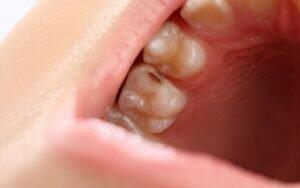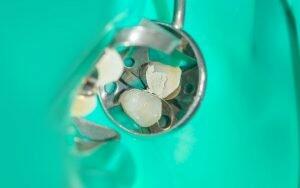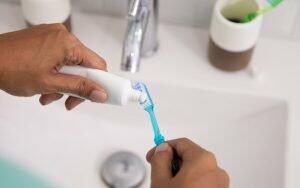Dental sealants can be the solution you’re looking for if you are prone to cavities and tooth decay. Read on to find out if sealants are right for you…
Cavities & Tooth Decay – A Chronic Disease?
Yes, you read that right – a chronic disease. Did you know:
- Tooth decay is the most common chronic disease among children
- Tooth decay is the second most common reason for school absenteeism
- Tooth decay is an infectious disease which can be transmitted by sharing food or utensils
- Tooth decay is entirely preventable!
We all know the basics of good oral hygiene to help prevent cavities: brushing at least twice a day for two minutes; flossing at least once a day; avoiding sugary foods and beverages; and visiting the dentist regularly for checkups.
However, despite adhering faithfully to all these measures, some people find themselves extra susceptible to cavities anyway, through no fault of their own. Perhaps, when their teeth were being formed by the body, there were tiny holes in the enamel right from the start, providing easy access for bacteria to enter. Perhaps the normal pits and grooves that everyone has on the surface of their teeth are substantially deeper in some mouths than others, making those teeth harder to keep free of debris and food particles when cleaning.
Regardless of the reason, there is a simple, inexpensive, and painless solution: Dental Sealants.
What Are Dental Sealants?
Dental sealants do exactly as the name implies: they seal off the tooth from decay-causing bacteria. Everyone has bacteria in their mouth. But when these bacteria meet up with leftover food particles lingering in and around the teeth, harmful acids are produced which settle on and between tooth surfaces. These acids then create holes in the enamel, resulting in cavities.
Sealants are protective coatings, applied to the chewing surfaces of teeth, that act as barriers to prevent these food particles and resulting acids from taking hold and settling on the tooth enamel.
How Are Dental Sealants Applied To Teeth?
It’s a very simple and painless process that requires no anaesthetic or recovery time. First, your dentist will thoroughly clean and dry the tooth (or teeth) to receive the sealant. Once completely dry, an acidic gel is placed on the teeth in question, which roughens the surface to ensure a strong bond when the sealant is applied.
The gel is rinsed off after a few seconds, and the dentist will clean and dry the teeth once again to ready them for the sealant itself. The sealant material is applied (usually painted on) to the grooves of the teeth and then hardened, or set, using a special blue light activation.
And that’s it! You’re done! Your vulnerable teeth are now protected with a super strong coating which will keep out all those nasty food particles and bacteria that cause cavities.
It’s important to understand that dental sealants are not to be viewed as a substitute for proper oral hygiene, but rather, a highly effective strategy to add to your cavity prevention toolkit. Brushing, flossing, healthy food choices, and visiting your dentist for regular checkups are all still essential to keeping cavities at bay.
Can Sealants Be Placed Over Teeth With Existing Fillings?
Typically dental sealants are not applied to teeth with cavities that have already been filled. However, teeth that are showing early signs of tooth decay (before any actual cavities have developed) are perfect candidates for sealing, as the protective sealant can help prevent the teeth from decaying further. In fact, some sealant materials are clear, allowing your dentist to check the decay on those sealed teeth at your regular checkups to ensure it isn’t progressing.
How Long Do Sealants Last?
Sealants usually hold up quite well under the force of normal eating and chewing. They may last several years before another application is needed. As long as the sealant is in place it will protect the pits and grooves of that tooth from decay. Your dentist will check at each visit to make sure the bond is still holding strong.
Do I Still Need To Use Fluoride Toothpaste If I Have Sealants?
Yes. Fluoride (whether in your toothpaste or your tap water) and dental sealants go hand-in-hand when part of an overall cavity prevention strategy. It’s not one or the other; both are highly effective at preventing plaque and tooth decay.
Who Should Get Dental Sealants?
Your dentist may recommend sealants for your child as soon as their teeth begin to erupt, to prevent cavities from forming on them before their all-important adult teeth come in. However, sealants are not limited to our youngest patients. Adults who are prone to cavities and tooth decay can absolutely have dental sealants as well. Talk to your dental health professional to find out if you are a candidate for sealing.
If you’re not sure whether dental sealants can help you, give us a call at 905-775-5307, or schedule a consultation here.

